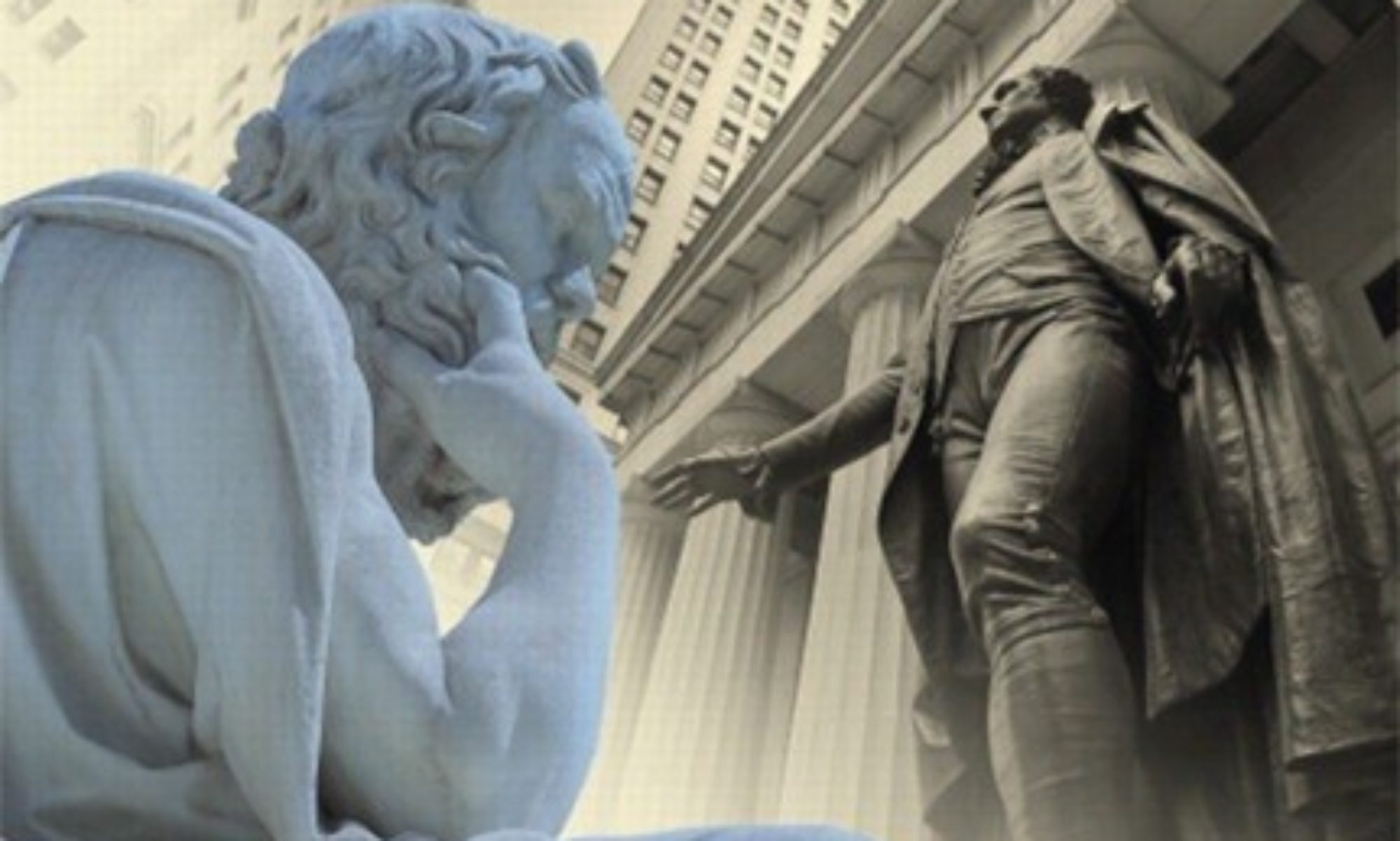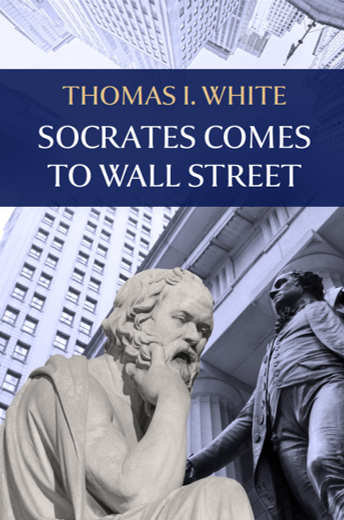THIS BOOK IS AN ELECTRONIC, BUDGET-FRIENDLY ($25) REISSUE OF THE ORIGINAL 2016 EDITION. IT IS AVAILABLE FROM AMAZON AND BARNES & NOBLE. Faculty interested in receiving a complimentary desk copy, please write to twhiteATethicsandbusiness.org.
A variety of disturbing events – not least of which is the ongoing concentration of the nation’s wealth in the hands of a very small percentage of the population – have given us reason to question a number of basic assumptions about business, corporations, and the workings of contemporary free-market capitalism in a global economy. Written as a fictional dialogue between a bank CEO and a unique venture capitalist whose friends have nicknamed “Socrates,” Socrates Comes to Wall Street challenges readers to think critically about ideas and practices that are taken as “givens” in most American corporations and business schools. Honoring the spirit of the historical Socrates’ claim the “the unexamined life is not worth living,” this book suggests that relentless scrutiny by a contemporary Socrates shows that a number of these assumptions are likely false–the product of ideology, not facts.
This book is a deliberate combination of opposites. It is a conventional introduction to business ethics that explains the main traditions of philosophical ethics and applies them to issues in contemporary business. But, in honoring the Socratic idea that “the unexamined life is not worth living,” it is also a fundamental challenge to much that we take for granted about how business and the economy supposedly operate.
The book’s originality lies primarily in using a Socratic dialogue to lead the reader through an unrelenting questioning of our most “sacred cows” in business. Over the last twenty years, I have heard too many otherwise smart executives make too many claims that turn out to be false and/or that show a disturbingly limited view of ethics. The 2008 meltdown–the original inspiration for this book–was caused by a combination of greed, ethical blindness and a mindless acceptance of ideology. I believe that one way we can protect ourselves from a similar disaster in the future is to ground our decisions in facts, good sense and the kind of skepticism the historical Socrates represents.
In holding the book’s CEO’s feet to the fire, our “Socrates” floats a series of deliberately provocative ideas.
- No rational, self-interested person truly believes that business is mainly about making money. Business is primarily a vehicle for letting the members of a society live a good quality of life. Business is a means to an end. Like government, it should work for the average person, not the other way around.
- In the same way that corporations have a duty to give shareholders a return on their investment, businesses owe taxpayers a return on the infrastructure that allowed these firms to be successful in the first place. By lobbying incessantly to lower corporate taxes while allowing a crumbling infrastructure to get worse, such corporations become free-riders who “take the money and run” while perpetuating the myth that lower corporate taxes will provide more domestic jobs and make for a stronger economy.
- “Socrates” is so heretical he even argues that the current workings of the economy match disturbingly well the main lines of a “giant con.” He even has a name for it–“The Sheriff of Nottingham.” Too bizarre to be true? Maybe. Maybe not. Remember that the historical Socrates claims that “vice harms the doer.” Another strange idea, but true.

